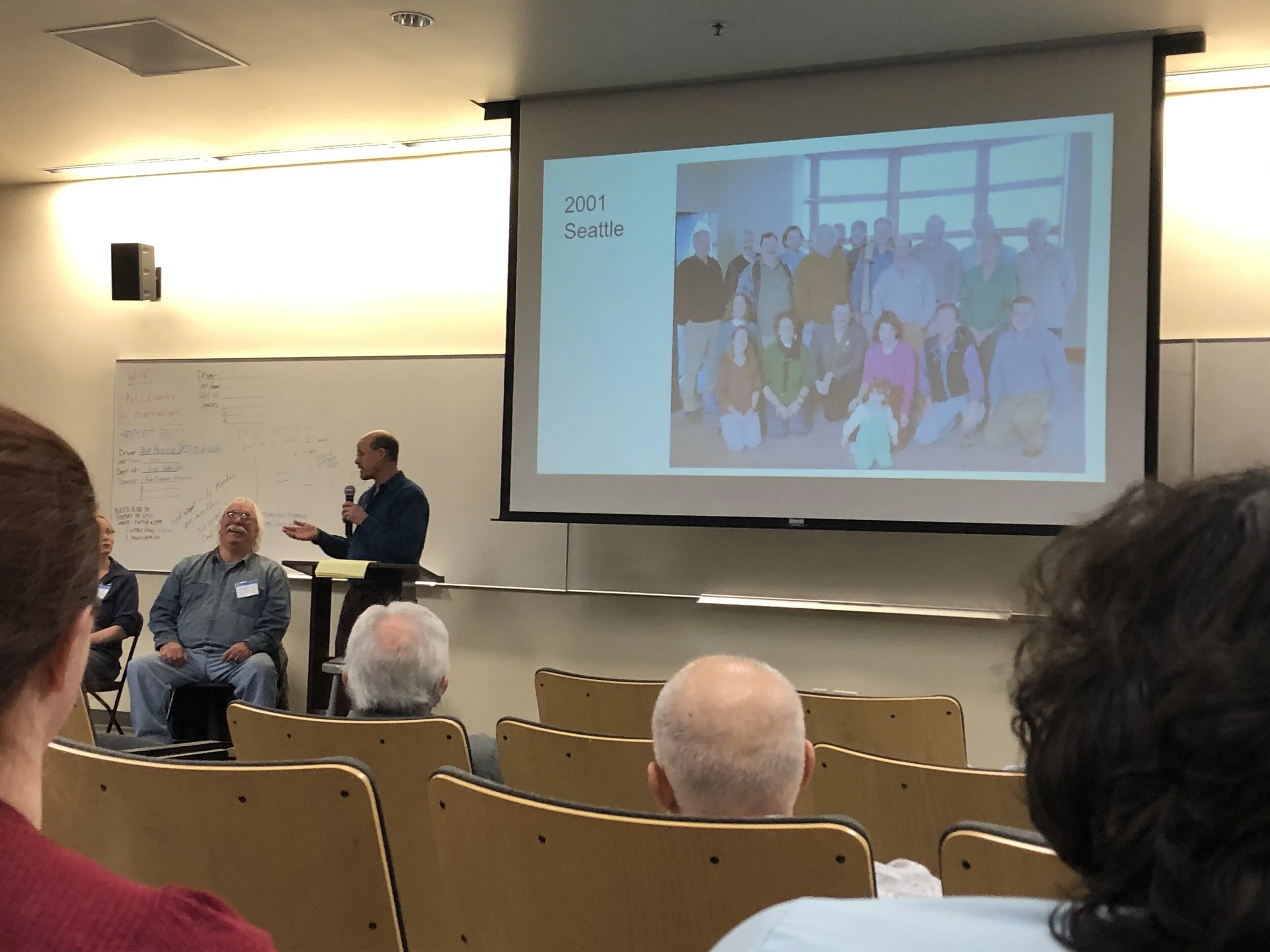Last weekend, StoveTeam staff attended the 2020 ETHOS convention (Engineers in Technical and Humanitarian Opportunities of Service). Stove engineers, inventors, scientists, nonprofit teams, and experts of all kinds converged in Seattle to share their latest projects and chat about their plans for the coming year. Now in its 20th year, this conference was first started by a group that included StoveTeam’s Program Director Mike Hatfield!
As a relative newcomer in the world of stoves I was all ears, taking in as much information as I could. The first night began with a 20th anniversary party and informal presentations by people from a wide variety of organizations and backgrounds, ranging from the nonprofit Aid Africa talking about planting trees for fuel wood that grow so quickly that people only need to cut the branches to fuel their cookstoves, to Ryan Thompson from Mountain Air Engineering sharing his recent frostbitten misadventure on a mountain peak in Nepal.
Over the next 2 days, we saw presentations on every aspect of stove design, testing, and dissemination. Paul Anderson presented his newest TLUD (Top-Lit Up-Draft) design, which burns wood pellets but ignites the vapors that are released to produce a very clean fire and eventually results in charcoal which the user can use or re-sell. A variety of stove sensor producers gave presentations on testing methodology, results from their own studies, and the intricacies of their particular sensor technology - which ranged from sensors that send stove usage and fuel level data directly to the cloud, to sensors that perform internal calculations and present a digital readout showing how many times the stove has been used.
All manner of stoves were discussed, including biochar, biogas, petroleum natural gas (PNG), liquid petroleum gas (LPG), wood, wood pellet, coal, charcoal, electric, solar, kerosene, electrically-assisted stoves, and even items that can improve the efficiency of a simple 3-stone fire. One presentation compared successful and unsuccessful stove projects, and what led to each outcome. Aprovecho Research Center shared their latest invention - the Jet Flame - a powered fan unit that can be inserted into the bottom of many wood-burning stoves, and dramatically increases efficiency by forcing air into the fire, resulting in a more uniform mixture of air and fuel. The question of how we rate stove efficiency was discussed, including presentations by members of the EPA and Clean Cooking Alliance on the most common currently used scale, the ISO scale which rates stove efficiency on tiers from 0 through 5. The question of testing methodology was raised as well, with a variety of presentations on testing methods, and methods for analyzing data.
Since our organization works in areas where wood is the only available stove fuel source, I was most interested in the presentations that had to do with wood burning stoves. We learned about the role that wood wetness plays in efficiency and testing, and even dove into measuring how wet a piece of wood is, as well as taking into account the dimensions, density, and age of the wood, in the interest of seeing whether the wood used in testing accurately represents the wood stove users are burning in the field.
I learned that our stove, the Ecocina, is special because it checks so many boxes where some stoves fall short: It‘s hard to tip over, it’s insulated so it’s cool to touch, it doesn’t have sharp edges, it’s relatively portable, your clothes can’t get burned while you’re using it, it’s tall enough that there isn’t much danger of sparks leaping from the top, it’s easy to use, fuel for it is relatively easy to find, it’s affordable, it can be made locally, and a user can easily meter their fuel consumption while using it.
Overall the conference was fun and extremely informative. It was fantastic to be surrounded by so many brilliant people devoted to solving the worldwide problem of disease associated with open fire cooking. I made many great connections that I look forward to collaborating with in the future! StoveTeam’s Executive Director Shelby Kardas and I have resolved to present next year on our approach to spreading knowledge about the importance of clean cooking, and the importance of gathering the support of as many people as possible so that this mission can grow to the scale it deserves.
Photo: Oregon State University’s Nordica MacCarty watches and Aprovecho’s Dean Still laughs while StoveTeam’s Mike Hatfield presents about the history of ETHOS, and where it’s going in the future.
Forest Resener, Communications and Operations Director

